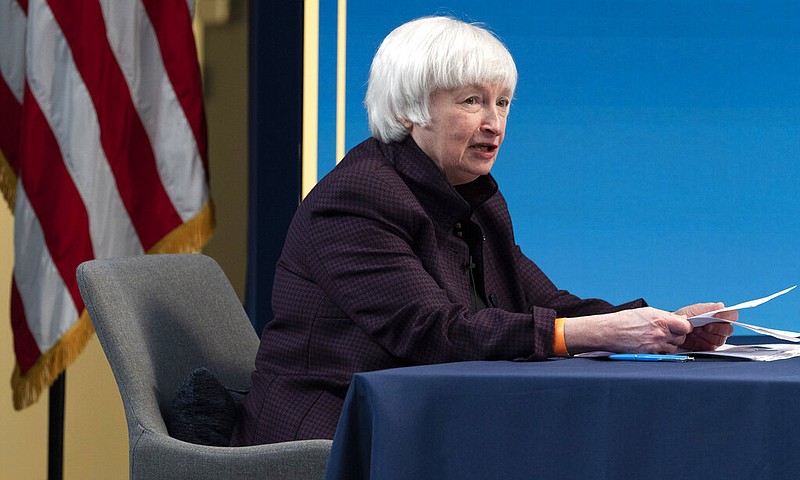WASHINGTON -- Treasury Secretary Janet Yellen on Monday called for speeding up the distribution of the coronavirus vaccine in poorer nations, arguing that the U.S. and global economies are threatened by the impact of covid-19 on the developing world.
While the United States and other rich countries are hoping for a return to normalcy as soon as this fall, many parts of the developing world are not on pace to have widespread vaccination of their populations until 2023 or 2024. Those countries have largely suffered more devastating economic impacts from covid, in part because they do not have the fiscal capacity to authorize the levels of emergency spending approved in the United States.
In remarks Monday to the Chicago Council on Global Affairs ahead of meetings this week of international finance officials, Yellen called on richer countries to step up both economic and public health assistance to poorer nations reeling from covid. She noted that as many as 150 million people across the world risk falling into extreme poverty as a result of the crisis.
[Video not showing up above? Click here to watch » https://www.youtube.com/watch?v=GKUqcZ10GXY]
"This would be a profound economic tragedy for those countries, one we should care about. But that's obvious. What's less obvious -- but equally true -- is that this divergence would also be a problem for America," Yellen said. "Our first task must clearly be stopping the virus by ensuring that vaccinations, testing and therapeutics are available as widely as possible."
But Yellen's calls for a forceful global effort face significant head winds. President Joe Biden's administration has so far resisted pressure to change intellectual property rules to allow more countries to produce coronavirus vaccines. Democratic members of Congress and some global health experts have warned that refusing to do so could make it harder to vaccinate billions of people in poorer countries in Africa and parts of South America and Asia.
Meanwhile, Republican opposition has intensified in recent weeks to several of Yellen's global initiatives. GOP lawmakers have in particular criticized Yellen's push for a new international minimum tax, as well as her support for foreign emergency aid through the International Monetary Fund.
Yellen's remarks come at a pivotal juncture for her ambitious international agenda. In a reversal from the Trump administration, the Treasury Department under Yellen will this month authorize a new allocation of an emergency form of aid to developing nations known as "Special Drawing Rights."
Such aid, which does not need congressional approval, would allocate a special currency reserve through the International Monetary Fund to dozens of countries across the globe. That special currency could then be traded to the United States in exchange for dollars, which would help distressed foreign countries shore up their reserves.
The move has sparked a backlash on Capitol Hill, where Sens. Pat Toomey, R-Pa., and John Kennedy, R-La., criticized the measure as "inappropriate, ineffective, and a wasteful use of taxpayer dollars" that would benefit both countries who do not need help and foreign adversaries such as China and Iran.
The Treasury Department responded that the United States would retain the right not to purchase Special Drawing Rights from foreign countries, such as those being sanctioned by the U.S. The department also said there would be no budget cost to the United States from the initial allocation.
